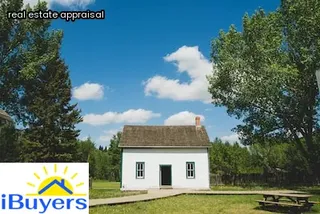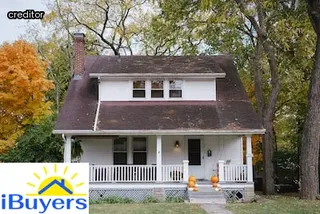Understanding the home appraisal process and how long it takes to close on a house is essential for any potential homeowner. Knowing what to expect during an appraisal, the timeline of events leading up to closing on a property and the importance of having a professional appraiser can help buyers understand the process and make informed decisions.
Appraisals typically take 3-5 days from start to finish, but there are several variables that can impact this timeline, such as scheduling availability, weather conditions and the size of the property. It's important for potential buyers to factor in extra time for unexpected delays in order to ensure that they meet their closing deadlines.
Additionally, understanding how appraisers value a home is key in determining its fair market value, which can have an effect on the terms of a contract. Working with experienced professionals who can explain the nuances of home appraisals and walk you through each step of the process is a crucial part of closing on your dream home.

The home appraisal process is an important step for anyone looking to buy a house. During the appraisal, a professional appraiser will assess the value of the home, usually based on its condition and comparable properties in the area.
Appraisers will inspect both the inside and outside of the property, taking note of features like square footage, number of bedrooms, condition of appliances and plumbing systems, as well as any structural damage or repairs that may need to be made. Additionally, they may take photos and measurements to include in their written report.
Once the appraisal is complete, you can use it to help determine how much you should pay for the home and how long after an appraisal can you close on a house.
Preparing for a home appraisal can be stressful, but it doesn't have to be. A little preparation and research can go a long way in ensuring the appraiser has all the information they need to make an accurate evaluation of your home.
Start by gathering any documents and records related to recent home improvements or renovations you've made, such as receipts, contracts, and permits. Additionally, consider providing the appraiser with a list of comparable homes in your area that have recently sold.
This will help them determine an accurate market value for your home. Finally, make sure your home looks neat and tidy both inside and out.
Clear away clutter, mow the lawn, and spruce up your landscaping if needed. Taking these steps will ensure the appraiser is able to perform their job efficiently and accurately so you can close on your house quickly after the appraisal is done.

The length of time it takes to close on a house after an appraisal is largely affected by the number of parties involved in the sale and their respective workloads. The mortgage lender's loan processing, underwriting, and funding departments all play a role in determining how long you'll have to wait for the closing date.
Additionally, any delays or issues with loan conditions can also prolong the timeline. Your real estate agent may need to contact the seller's agent to check in on the status of paperwork or provide additional documents if required.
Even simple tasks such as scheduling an appointment with the title company can affect how quickly you can close on a house. The information shared between all parties needs to be accurate and complete, so if there are errors it becomes necessary to go back and make corrections which adds time to the timeline.
Ultimately, having all of your paperwork ready ahead of time can help ensure that everything runs smoothly so that you can close on your new home as soon as possible.
When it comes to buying a house, there are many different types of mortgage loans available. From conventional loans to FHA and VA loans, the average closing time for each type can vary.
Conventional mortgages typically take an average of 30 days from the time of appraisal to close, while FHA and VA loans may take 45-60 days. Depending on the lender, some mortgages may have longer closing times than others.
Factors such as credit score and loan type can also affect the process and how long it takes to close. Additionally, if there are any issues that arise during the appraisal or inspection process that need to be addressed, this too can add more time to the total closing process.
It is important to consider all factors when deciding on a mortgage loan and understanding what goes into the duration of the closing process.

The process of closing on a house has changed significantly over time. Before the days of digital technology, the entire process was done by hand and took much longer than it does today.
In the early days, it could take up to two weeks for an appraisal to be completed and for a closing date to be set. This process has become much shorter over time with the introduction of faster computers and more efficient ways of handling paperwork.
However, even today, there can still be delays in setting a closing date depending on the type of appraisal being conducted and other factors. Understanding how long after an appraisal you can close on a house is important in order to ensure that you are able to close on your dream home as quickly as possible.
Accelerating the mortgage closing process after a house appraisal requires a thorough understanding of the process. Knowing the timeline and what to expect can help you determine how long it takes to close on a house after an appraisal.
Before you can close, there are certain steps that must be taken, such as verifying your income and assets, obtaining homeowner's insurance, closing on the loan and signing the closing documents. Different lenders have different requirements that must be met before they will approve your loan.
Additionally, various types of loans have different timelines for closing. Working with an experienced real estate agent can provide valuable insight into ways to speed up the process while staying within the parameters of the law.
Being prepared in advance by having all paperwork ready to go can also help expedite things. Finally, communicating regularly with all parties involved is essential for keeping track of any changes and ensuring everything is moving forward in a timely manner.

Speeding up the mortgage closing time can have both its pros and cons. On one hand, a faster closing process may be beneficial for both the buyer and the seller if they are in need of an expedited timeline due to personal or financial reasons.
A quicker closing time can also help ensure that the costs associated with holding a mortgage remain low, as shorter loan terms often mean lower interest rates. However, there are also potential risks associated with rushing through the closing process.
For example, if information is overlooked due to a shortened timeline, it could lead to costly delays down the line and potential legal issues if documents were not properly reviewed or signed. Additionally, buyers should be aware that if they move too quickly, they may miss out on better deals available on the market.
Ultimately, how long after an appraisal can you close on a house will depend on both local laws and individual circumstances.
When it comes to closing on a home loan, time is of the essence. But when you have an appraisal involved, you may be wondering how long it will take before you can close on the loan and move into your new home.
Fortunately, there are several options available for those looking to expedite the process so that they can close on their house as quickly as possible. From getting an appraisal waiver to using a lender who offers fast closings, this comprehensive guide will explore all of the possible ways to make sure that your home loan closes in a timely manner.
Furthermore, understanding how appraisals work and what you need to do prior to obtaining one can help ensure that everything goes smoothly during the process and help you get into your new home with minimal delays.

Understanding the impact of rate locks on mortgage closing time is an important part of the process when figuring out how long after an appraisal can you close on a house. A rate lock is a guarantee from a lender to hold a specific interest rate and associated points for a specified amount of time.
Rate locks prevent interest rates from fluctuating, which could cause mortgage payments to increase or decrease before closing. The length of the rate lock period will vary depending on the lender, so it's important to find out the specifics before making any decisions.
Additionally, if there are delays in getting through the closing process such as appraisals or other paperwork not being completed in time, a rate lock extension might be required. Knowing all this information is key to understanding how long after an appraisal one can close on a house and helps determine if it's even feasible to do so within the desired timeframe.
Analyzing current market conditions is a critical part of the home buying process, particularly when it comes to mortgages and closing on a house. It's important to have an understanding of the market and its influence on mortgage rates in order to determine how long you can wait after an appraisal before you close on a house.
Factors like economic growth, unemployment, inflation, consumer confidence, and housing supply should all be taken into consideration when evaluating current market conditions. Homebuyers must also consider local factors such as population density, availability of land for construction, the condition of existing homes, and the strength of local economies.
All of these elements impact mortgage rates and can help determine how long after an appraisal you can close on a house. Additionally, it's essential to be aware of changing trends in the broader real estate market so that potential buyers can make informed decisions about their purchase.

When it comes to closing on a house, timing is key. Knowing exactly how long after an appraisal you can close can help you optimize your mortgage timeline and ensure everything goes smoothly.
The process of closing on a home varies from lender to lender and depends on many factors, such as the type of loan you are getting, the type of appraisal conducted, the state in which you live, and whether or not additional documents are needed. It typically takes anywhere from two to six weeks to close on a house after an appraisal has been completed.
To make sure everything moves forward quickly and efficiently, make sure all parties involved understand their roles and responsibilities throughout the process. Additionally, keep track of your documents and make sure they're up-to-date so they don't slow down your timeline.
Communication is also essential; be sure to stay in contact with your real estate agent, lender and appraiser throughout the entire process so nothing gets lost in translation. By following these guidelines for optimizing your mortgage closing timeline, you'll be able to close on your new home in no time!.
When looking to close on a home, working with an experienced real estate agent can provide many benefits during the mortgage closing process. An experienced agent has expertise in local laws and regulations, and can be a valuable asset in helping to negotiate with appraisers and lenders.
An experienced agent can also provide advice on any potential problems that may arise during the appraisal process, as well as help guide you through the necessary paperwork and documentation. In addition, they can assist in determining the best financing options to fit your needs, help create a timeline for closing on your home, and keep the closing process moving along at a steady pace.
Ultimately, having an experienced real estate agent by your side when closing on a home can provide much-needed guidance, support, and peace of mind throughout the entire process.

When deciding between a fixed and adjustable rate mortgage, there are several factors to consider. It is important to understand the differences between the two, including their rates, terms, and payment amounts.
Fixed rate mortgages offer the same interest rate over the life of the loan, while adjustable rate mortgages can fluctuate with market conditions. Additionally, adjustable rate mortgages may start out with a lower interest rate than a fixed rate mortgage but could end up costing more if interest rates rise significantly over time.
It is also important to consider how long you plan on living in your home when selecting between fixed and adjustable rate mortgages; if you expect to stay in your home for many years, a fixed-rate mortgage may be preferable due to its stability and predictability. If you're not sure how long you'll stay in your home or anticipate needing flexibility due to financial uncertainty, an adjustable-rate mortgage may be more appropriate.
Ultimately, it is essential to weigh all of these factors carefully when choosing between a fixed and adjustable rate mortgage for your new home purchase after an appraisal.
Successfully closing on a mortgage is a complicated process with many steps involved. The first step is to obtain an appraisal of the property, which provides an estimate of the home's market value.
After the appraisal has been completed, it's important to understand how long you need to wait before closing. Generally, the time frame for closing after an appraisal can range from one week to several months.
It's wise to work closely with your lender and real estate agent throughout this process in order to ensure that documents are in order and that any potential delays are properly handled. Additionally, it's important to consider any additional paperwork needed such as loan disclosures or title searches that may be required by your state or county laws.
Taking all these factors into consideration will help ensure a successful mortgage closing.

When it comes to understanding fees associated with a mortgage loan and how they affect your final cost, it is important to consider all costs involved in the process. This includes appraisal fees, which can vary depending on the property's location and size.
Appraisals are typically required by lenders prior to closing on a home purchase and may involve an inspection of the property. These fees are typically paid at the time of application and must be considered when calculating your total cost.
Additionally, other costs such as title insurance, origination fees, underwriting fees, discount points, private mortgage insurance (PMI), and closing costs should all be taken into account when determining the final cost of your mortgage loan. Additionally, understanding how long after an appraisal you can close on a house is important so that you know when you will be able to move into your new home.
Once the application materials for a mortgage have been submitted, the process to receive approval can take anywhere from a few days to several weeks. Factors such as the size of the loan and the borrower's credit history can play a role in determining how long it takes to receive approval.
To give yourself the best chance of closing on time, there are several tips and strategies that you can use to navigate potential delays during the mortgage process. Assemble all necessary documents before submitting your application, review your credit report for errors and make sure that any issues are addressed promptly.
Knowing what is required upfront and preparing everything prior to submitting your application will help ensure that any potential delays are minimized. Additionally, be sure to communicate with your lender regularly throughout the process and respond quickly if they ask for additional information or documentation.
Lastly, meet all deadlines set by your lender and remain mindful of timelines so that you don’t miss out on important dates or documents needed to close on time. By following these tips and strategies, you can significantly reduce delays in obtaining approval after submitting your application materials, giving you the best chance possible of closing on the house when you expect to.
After a house appraisal is complete, the next step is to obtain a loan commitment from the lender. The loan commitment outlines the terms of the loan and provides an estimated closing date.
Once the loan has been approved, it's time to work on closing details such as signing documents and arranging for an inspection of the property. The closing date will be determined by both parties involved; however, it typically takes no more than 30 days after the loan commitment is received.
It is important to remain in contact with your lender throughout this process to make sure that all necessary documents are received in a timely manner and that there are no issues with obtaining final approval for the loan.

An appraisal should be done close to closing in order to ensure that the home is worth the amount you are paying for it. This is a critical step in the closing process and one that should not be overlooked.
The appraiser evaluates the condition of the home and its components, such as plumbing, electrical and structural elements, in order to determine its fair market value. It's important to understand how long after the appraisal can you close on a house so you can plan accordingly.
Generally, an appraisal should be completed within two weeks before closing day in order for lenders to have time to review and approve it before signing off on financing. However, this timeline may vary depending on individual lender requirements and local regulations.
Planning ahead ensures that your house closing goes smoothly and gives you peace of mind knowing that your new home is in good hands.
The home-buying process can be a stressful and daunting process, and one of the most important steps to ensure a smooth closing is getting an appraisal. After an appraisal is completed, it typically takes up to 30 days for an underwriter to close on a house.
For a more thorough understanding of how long after an appraisal can you close on a house, there are several factors to consider including the type of loan being used, the condition of the property, and any additional paperwork required. A conventional loan typically requires no more than 30 days for closing, while FHA or VA loans may take slightly longer as they often require additional paperwork.
If the property has been inspected and all repairs have been completed prior to closing, then this could also speed up the timeline. Finally, any additional paperwork or documentation that is needed from either the buyer or seller can also add time onto the closing process.
By thoroughly understanding these factors and taking into account any potential delays that could arise during closing, buyers can be better prepared to determine just how long after an appraisal can they close on their new home.
The home loan process can be a lengthy one, and it's important to know how long it will take to close on the loan. One of the biggest factors in determining the length of time between appraisal and closing is how long after an appraisal can you close on a house. This comprehensive guide will help you better understand the timeline for closing on a home loan after appraisal.
Typically, lenders need at least one to two weeks after an appraisal is completed before they can close on a house loan. This is because lenders need time to review the report and make sure that there are no issues with the property that could affect its value. Additionally, depending on your lender, they may require additional documentation or paperwork to be submitted which could also delay closing.
It's important to note that this timeframe may vary based on your particular lender and their specific requirements. Another factor in determining how long after an appraisal you can close on a house is the availability of funds from your lender. The lender must be able to fund your loan before you can close, so if there are any delays in obtaining these funds then this could add additional time onto the process as well.
Finally, it's important to keep in mind that any unexpected issues that arise during or after the appraisal could also cause delays in closing on your home loan. This could include anything from needing additional repairs or inspections prior to purchasing or even problems with title work or other documents related to the purchase of the property. If any of these issues arise, it could potentially add extra time onto your closing timeline as well.
Overall, understanding how long after an appraisal you can close on a house is essential for successfully navigating through the home loan process. While every situation is unique and timelines may vary depending upon numerous factors, typically lenders need at least 1-2 weeks after an appraisal before they're able to close on a house loan.